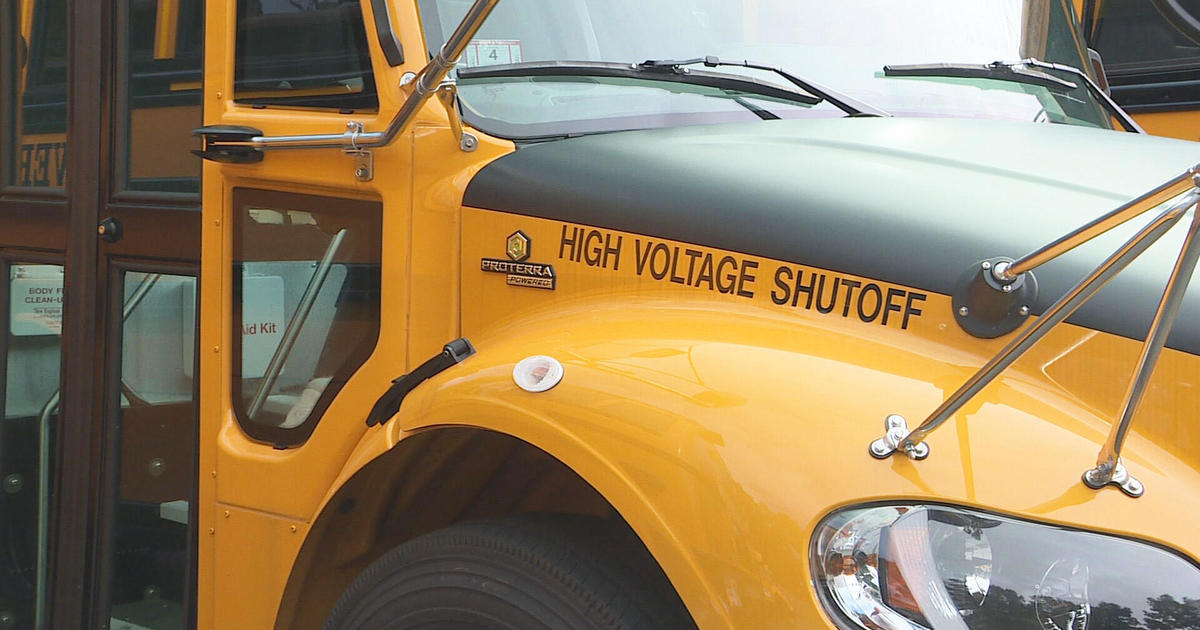Minnesota Parent: College Bound
(Minnesota Parent) -- They grow up so fast.
We hear it when we are holding our newborns, and a passerby at the mall pauses to cluck, coo and gaze. We hear it again as we listen to the kindergarten teacher speak at our child's first graduation ceremony.
We hear ourselves say it at middle school orientation when we realize our sons have grown so much they can now look at us eye-to-eye.
If you have opened your mailbox and an endless stream of college queries have tumbled out, if junior year is nigh … then it's time to start exploring colleges. Because just as fast as they have grown — making a decision about college comes even faster. Warp speed, actually.
By walking across the quad, meeting current students and staff, and sampling the campus cuisine, your kid can begin to imagine themselves in a college situation — or realize that a particular school is clearly not for them. But where do you start?
First, Go To The Fair
Before embarking on an in-person college visit, it's best to be prepared — and there's only so much you can do online. Begin your research by attending a national college fair, where hundreds of colleges and universities throughout the U.S. come together in one (very large) room to offer information on admission requirements, financial aid, testing, and potential majors. Visit nacacnet.org, the national college fair website, for a wealth of great information including various dates, exhibitors — and even tips on making the most of your time at the fair. Here are a few helpful ideas:
• Do you want to attend a two- or four-year institution? Co-ed or single sex?
• What size school do you want to attend?
• What programs of study are you considering?
• How far from home do you want to go?
• Do you want to participate in any specific extra-curricular activities or athletics?
• Do you want to attend a school in a suburban, urban or rural environment?
• Do you require any special services (i.e., tutoring, note takers, interpreters)?
While there, grab a bag and fill it up with information from those colleges that really interest your child. Be aware: the fairs are never long enough and are usually separated into a day and evening block. They are also jam-packed and your kid will see friends and want to socialize. Stay on track, and try to talk to as many representatives as you can.
Another is the performing & visual arts college fairs, in which those students with artistic talent have their portfolios or performances reviewed and critiqued by those in artistically-focused disciplines. The Minneapolis College of Art & Design (MCAD), for example, holds a yearly National Portfolio Day in October, the only one held in Minnesota. While fewer colleges are represented, the one-on-one critique is very helpful for those students interested in pursuing a creative career.
Preparing To Visit
Sue Luse, an Eagan college consultant, believes that parents should not only have information about the school, they should also know their student. "Number one on the list is for a parent to be informed about what your child's grades and ACTs [scores] are and what the college's requirements are," she says. "You want to take them to visit colleges that they have a realistic chance of getting into."
It's best to be aware of a student's academic strengths and weaknesses, but Luse says not to underestimate your child's abilities either. "I always believe in looking at stretches," she says of schools that might be harder to get into. "That can be a motivator for kids to get their grades up or take an ACT prep class."
However, avoid putting too much pressure on students because they may begin to resist the entire college search. "Kids get tired of it," Luse says. "That's why a lot of parents will hire me because their kid has shut down and won't talk to them about college anymore because they're sick of it. But they'll talk to me about it."
Visiting A Campus
After narrowing down potential colleges, it's time to start planning those visits. Both Luse and Donna Kelly, another Minneapolis college consultant, agree that parents should handle the logistics: figuring out when to visit (recommended: MEA weekend when high schools have time off, but colleges are still in session), hotels, flights, or driving details, and other travel-related issues.
However, after arriving on campus, the student should take charge of the visit. Luse says, "The student should be the one to walk up to the receptionist and introduce himself because it's their college journey, and colleges will take note of that. They want the student to be mature and handle exactly that."
Kristen Hatfield, associate director of admissions at the University of St. Thomas agrees that she likes to see students take initiative when they visit. "With the parent who really controls the whole process, the student doesn't even get to say his or her own name when they're checking in," she says. "Mom or Dad walks right to the counter and says, 'So-and-so is here; we're here for the visit.' It's important to remember that students are ready to make this really big decision, and they should take charge of it more than some parents may let them."
But what should you actually do on campus? Guidebooks and websites will give you checklists of what must be done to assess a campus: eat in the dining hall, attend a class, meet with a current student, etc. However, the college-sponsored tour and admissions information session should ultimately be able to give you a good feel for the rigors of college work.
Hatfield also recommends visiting an admission counselor. "They're experts on so many different areas of the university, or they know how to get in touch with the people who are the experts in an area," she says. "You really get a broad spectrum of the things you need to consider and what a college can offer just with a 45-minute appointment."
Parents should be aware of the questions they ask in front of their student while on a campus visit. No teenager wants to admit they're related to the person asking the tour guide an endless stream of embarrassing questions. Keep questions few and to important topics such as safety and financial aid and be aware of how your child will react.
"Some students feel really confident, and they're not particularly intimidated by mom standing next to them. They might roll their eyes, but it's okay," Kelly says. "Other kids, if mom or dad is asking questions, they sort of shut down. It's just really thinking about how this is going to work best for their child."
Also, don't worry about seeing everything in one visit. In a student's senior year, an overnight visit in the dorms is highly recommended and can provide more insight. Hatfield says St. Thomas also uses its overnight visits as opportunities for prospective students to meet each other. Most colleges also hold admitted students days in the spring after acceptance letters go out, so students can visit and make their final college decision.
Evaluating A College
After visiting a campus, parents should hold back a little and allow their child to process the visit. "A lot of times parents will get in the car and right away say, 'What'd you think?'" Kelly says. Students often need time to formulate their thoughts.
Luse also feels that some parents and students need to adjust their perspective on college acceptance. "College is a match to be made, not a prize to be won," she says. Students should look for a school that fits their individual needs, rather than looking at schools purely by name-recognition or competitiveness.
Parents shouldn't worry if their student doesn't have a final decision on a school after a visit either. "When you visit, you're not making a decision about whether you're going to attend," Kelly says. "At most, you're just making the decision about whether or not you might apply." You can even visit colleges after you've sent in applications, she adds.
Ultimately, visit schools with an open mind and lots of deep breathing. The college search can be stressful for parent and progeny alike with the looming decisions related to selecting the right school, applying, FAFSA (Free Application for Federal Student Aid), and acceptance letters, but it doesn't have to be overwhelming.
Allow your son or daughter the opportunity to freely explore the college search, and they might surprise you. "Just stepping back a little and letting the process unfold, I think is important," Kelly says. "As parents, our job is to set the table, to have good options for them, and then let the child determine what's really best for them."
Lauren Peck is a former intern with Minnesota Parent, currently attending St. Olaf College. Kathleen Stoehr contributed to this report.



